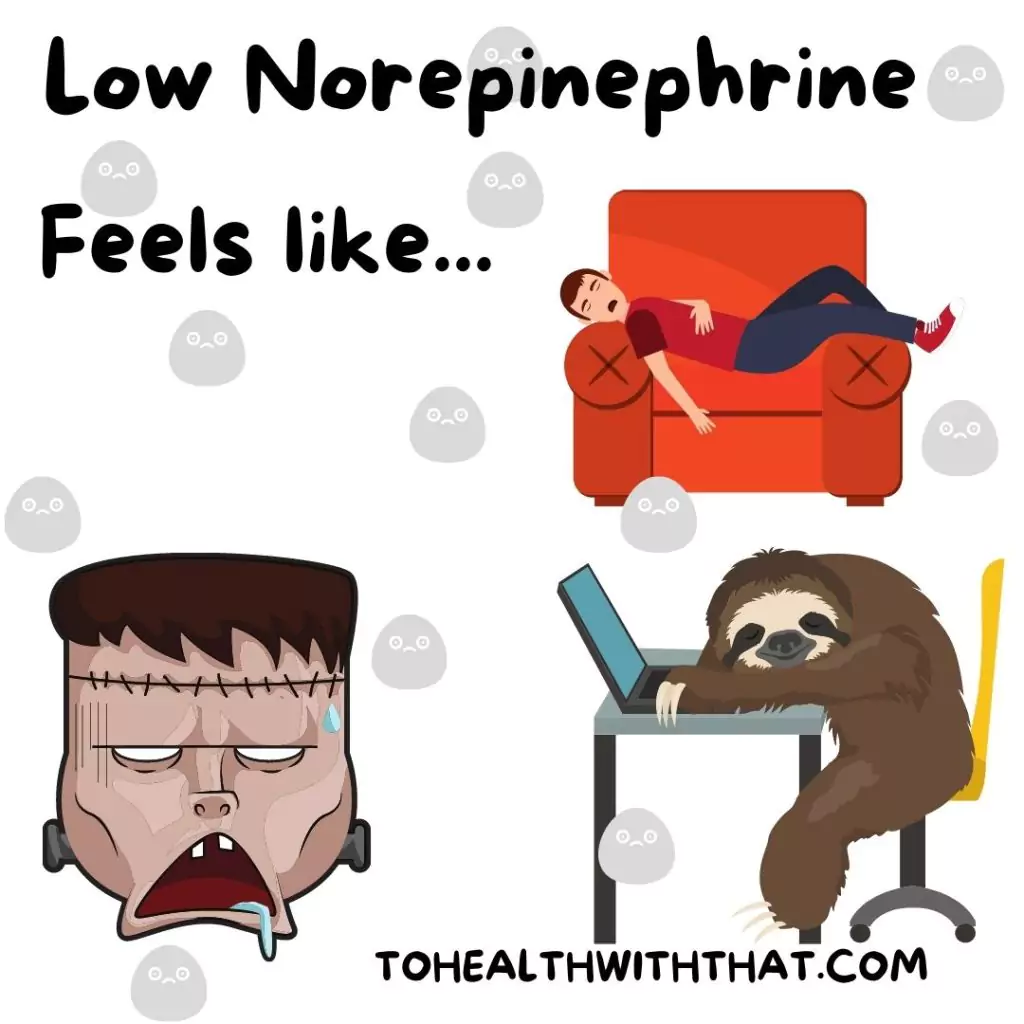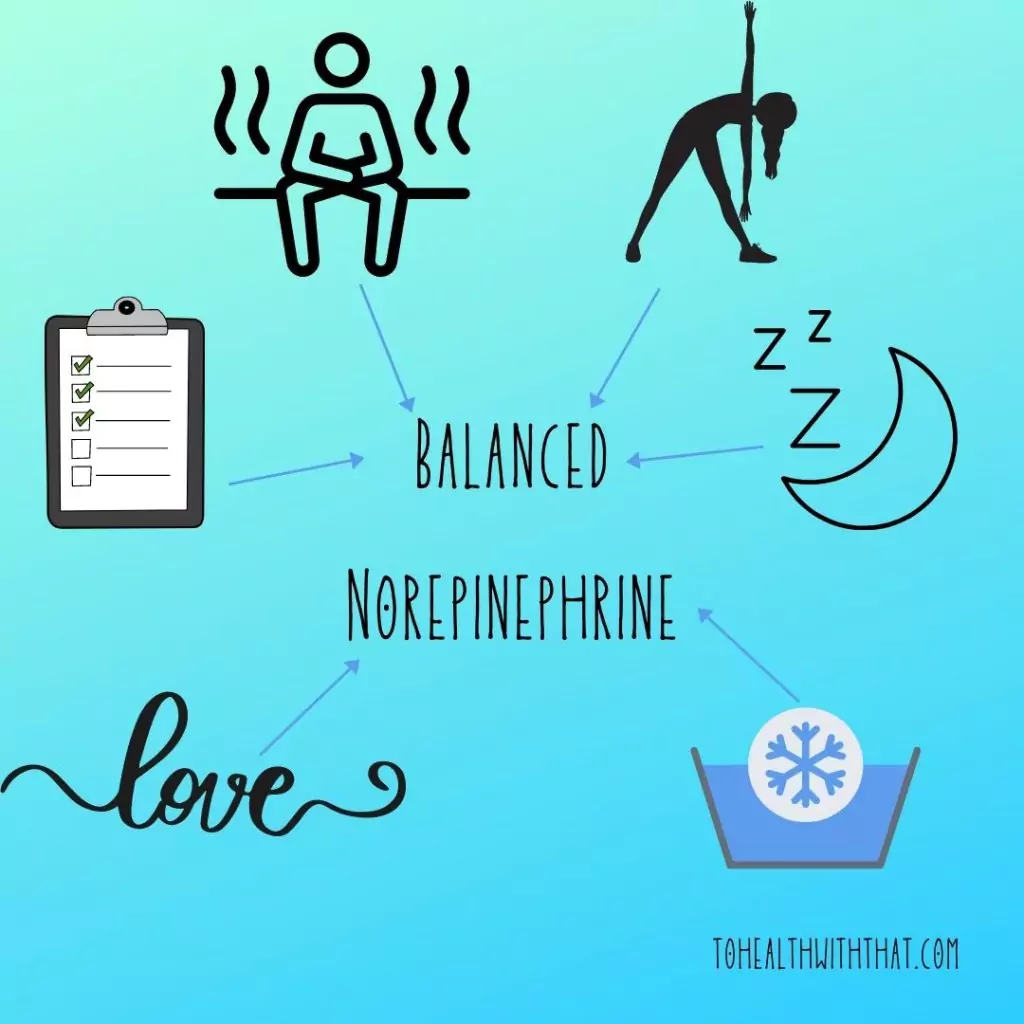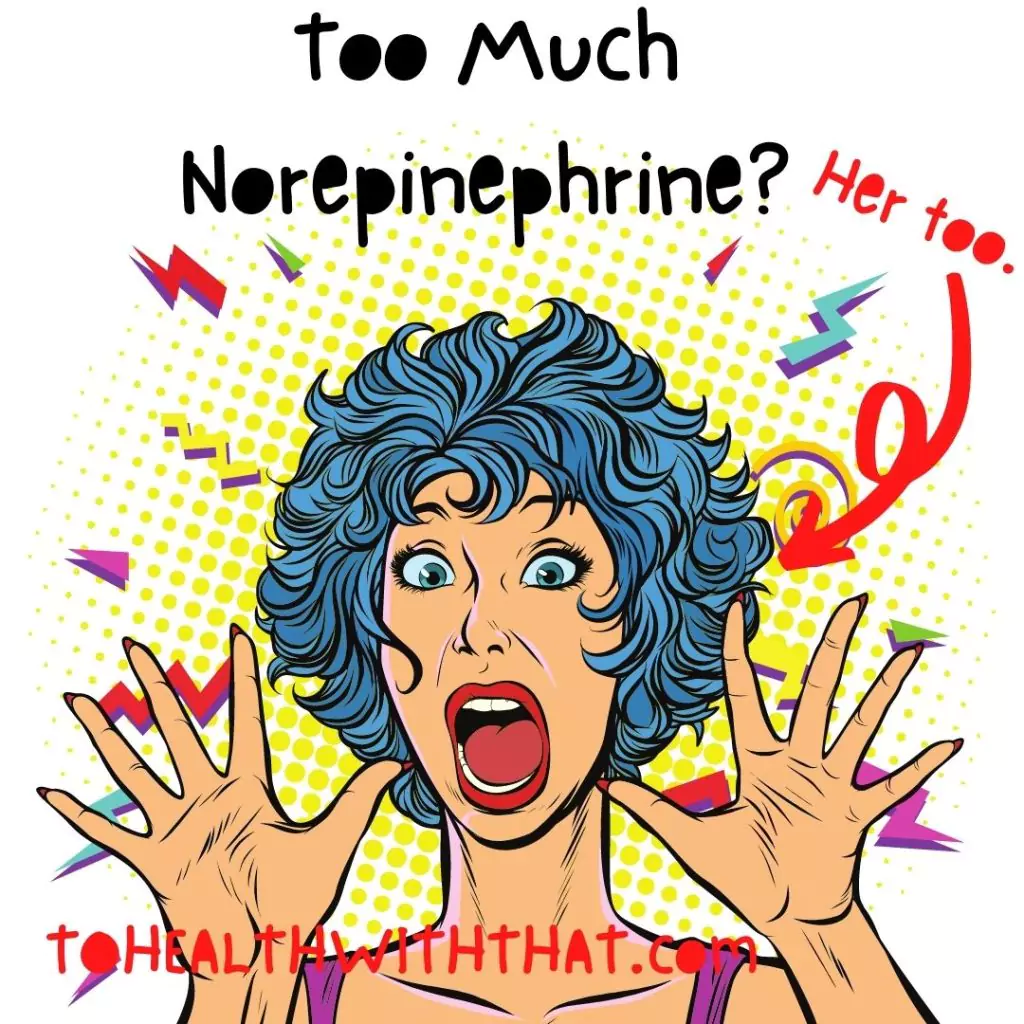MTHFR can be with mental health issues including depression, anxiety, obsessive-compulsive traits, and global issues like bipolar disorder or schizophrenia.
Culturally, we tend to jump to the idea that all mental health issues are neurotransmitter problems and that the only way to solve them is by boosting your neurochemistry. We’ll explore this idea in a series of posts. You can find the a discussion of serotonin here and information about dopamine here. Today, we’ll discuss MTHFR and norepinephrine, which has the dubious distinction of being both a neurotransmitter, and a hormone.
With mental health issues in a person with MTHFR, it is most important to look first at your methylation because balancing your methylation can produce tremendous changes in your mental health. There are other areas to explore too, like estrogen dominance (this is an issue for us MTHFR folks), low testosterone, or thyroid dysfunction. Still, once you’ve looked at the rest of your health, you may still want to explore neurotransmitters because MTHFR ties directly into neurotransmitter formation via the BH4 pathway. Specifically, the formation of serotonin and melatonin, and the catecholamine neurotransmitters including dopamine, norepinephrine and epinephrine.
MTHFR and Norepinephrine
Norepinephrine and its metabolite, epinephrine, are unique in that although they are primarily neurotransmitters, they also function in the rest of the body as hormones. Neurotransmitters are the method your nerves use to communicate. One neuron sends a chemical signal, the neurotransmitter, across a synapse to another neuron. Hormones are released generally into your bloodstream to affect your tissues.
Norepinephrine and epinephrine are generally associated with the fight or flight response. Although these neurotransmitters do have separate functions, there is significant overlap and so in terms of mental health, it is helpful to think of them in tandem. Generally, more information is available about norepinephrine as a neurotransmitter than about epinephrine so we’ll talk primarily about it. Norepinephrine is also involved in alertness, arousal of interest, pain response, and skeletal muscle function.
Symptoms of Low Norepinephrine
- Decreased alertness
- Memory problems
- Depression
- Loss of interest
- Brain fog
- Fatigue
- Lack of motivation

Conditions Associated with Low Norepinephrine
- Fibromyalgia
- Chronic fatigue
- Major depressive disorder
- ADD/ADHD
- Hypotension, or severe low blood pressure
Boosting your Norepinephrine If You Need To
- Exercise – as with every other neurotransmitter we’ve talked about, exercise boosts your catecholamines in a healthy way.
- Meeting Goals – learning to set goals effectively (in a way that allows you to regularly meet them) can provide a huge boost to your norepinephrine.
- Love – love boosts catecholamines and in a complex way is related to these neurochemicals.
- Sleep – also as with the other neurotransmitters, sleep is integral in the healthy formation and function of norepinephrine and epinephrine.
- Cold water plunge – this can double or even triple your norepinephrine levels in just a few minutes.
- Sauna – if cold isn’t your thing, a sauna can accomplish the same goal, it just takes a bit more time.

Symptoms of High Norepinephrine
Norepinephrine, unlike the other neurotransmitters, is as commonly too high as it is too low.
Like dopamine, can be involved in drug-type “highs” and subsequently this list looks very much like someone who has taken too much cocaine.

- Tense or spastic muscles.
- Anxious, fearful, irritable, or racing thoughts.
- Fear of crowds or small spaces.
- Insomnia, increased wakefulness, poor sleep.
- Difficulty concentrating.
- Changes to blood sugar sensitivity and the way glucose and insulin are produced.
- Headaches – people with chronic cluster headaches tend to have higher plasma levels of norepinephrine and dopamine, but high norepinephrine may lead to other types of headaches as well.
- Pounding] heart and increased blood pressure – norepinephrine increases the contractile force of the heart and raises systolic blood pressure.
- Sweating, generally freaking out.
- PTSD – recent research has shown that people with PTSD may have an overactive norepinephrine system.
Decreasing High Norepinephrine
Decreasing high norepinephrine is something we all want to happen quickly, but it’s important to give your body time to adjust.
- Lose weight – a study of obese older men showed that losing about 10 kilos (roughly 24 pounds) resulted in a 31% decrease in plasma norepinephrine levels. Bear in mind this is norepinephrine as a hormone and not as a neurotransmitter, but the levels seem to rise and fall at the same time.
- Cognitive Behavioral Therapy – Cognitive behavioral therapy operates on the idea that people who have had long-term stress have developed ways to cope with that stress, and helping them to learn healthier ways, will have a positive impact on their levels of anxiety, perceived stress, and also their neurochemistry.
- Melatonin + Lying down – Melatonin, mostly known as the sleep hormone, also helps to balance norepinephrine levels, but only if you take it and then lie down. Since it’s the sleep hormone, it’s probably best to do this at bedtime.
- Meditate – Meditation packs a punch in terms of reducing stress and balancing neurochemistry.
MTHFR is a common genetic mutation that can contribute to anxiety, depression, fatigue, chronic pain, infertility, and more serious conditions like breast implant illness, heart attack, stroke, chronic fatigue syndrome, and some types of cancer. If you know or suspect you have an MTHFR variant, schedule a free 15-minute meet-and-greet appointment with MTHFR expert Dr. Amy today.
Book Your Appointment
